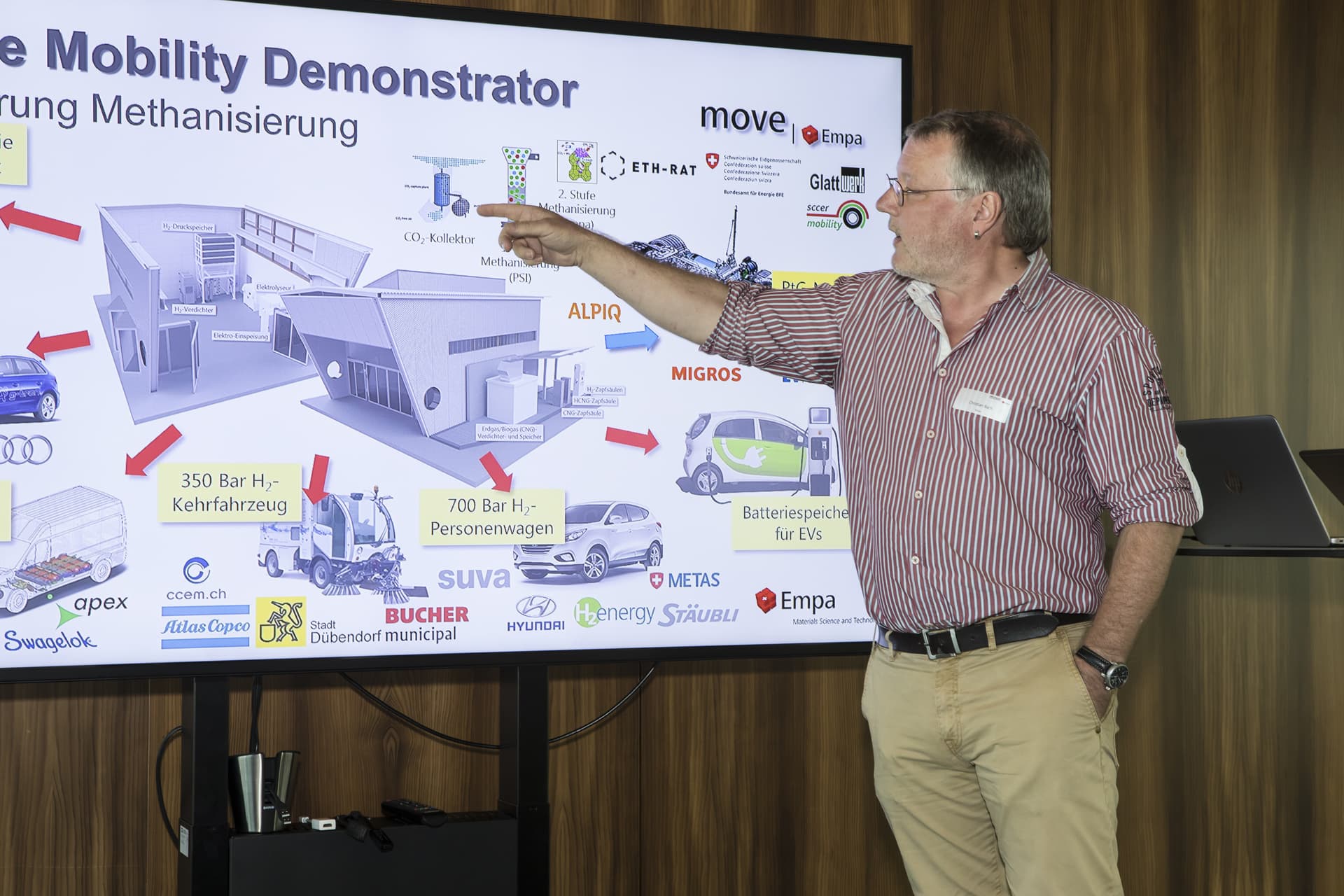Environment: Into the future with power-to-gas
TIME IS RUNNING OUT For Switzerland to achieve its CO2 targets, emissions from motorized private transport must also be reduced quickly and significantly. Power-to-gas plays an important role in this. At the "Symposium for Sustainable Mobility" at the Umwelt Arena in Spreitenbach, the focus was on power-to-gas, a technology whose potential is underestimated. According to a new study, [...]


At the "Symposium for Sustainable Mobility" at the Umwelt Arena in Spreitenbach, the focus was on power-to-gas, a technology whose potential is underestimated. According to a new study, up to one million cars in Switzerland could run on renewable gas.
SwissEnergy program strategy
Around 110,000 or 2.5 percent of all cars in Switzerland are currently powered by alternative drive systems - including 18,000 electric vehicles and 11,000 CNG (natural gas and biogas) vehicles. Electromobility has an important role to play on the road to an ecological future.
According to its "SwissEnergy 2021 to 2030 program strategy", the Swiss Federal Office of Energy is aiming to increase the proportion of electric vehicles (including plug-in hybrids) in new cars to 38% by 2030. However, this means that in eleven years' time, 62 percent of new cars will still be powered by combustion engines. They too can and must make their contribution to achieving the goals of the Paris Climate Agreement.
Significant reduction in CO2 emissions
Power-to-gas is a technology that can make a significant contribution to reducing CO2 emissions in motorized private transport. In Switzerland, there is the potential to run up to one million cars on synthetically produced methane with very low CO2 emissions in the future.
This is the conclusion of a new study carried out by the Swiss Federal Laboratories for Materials Science and Technology (Empa) and the Paul Scherrer Institute (PSI) on behalf of the Federal Office for the Environment (FOEN). As CNG (compressed natural gas), methane is a proven, safe and clean fuel for combustion engines.
The study investigated the potential in Switzerland to use surplus electricity in the summer months to convert electrical energy into chemical energy carriers such as hydrogen, methane or liquid hydrocarbons.
On a par with electric vehicles
Christian Bach, head of the Vehicle Drive Systems department at Empa and co-author of the study, presented the results at the symposium: "The CO2 emissions of these million cars would be reduced by 70 to 90 percent compared to gasoline vehicles. This is because the power-to-gas process removes the same amount of CO2 from the atmosphere to produce methane as is released again during combustion. The environmental footprint of a CNG vehicle is on a par with that of an electric vehicle."
Conclusion for everyday life: Under these conditions, Christian Bach came to the conclusion that electric vehicles are the ideal solution for short distances, while vehicles powered by synthetic fuels such as CNG and bio-diesel are the ideal solution for long distances.
Largest CNG company fleet in Switzerland
Coca-Cola and other companies in Switzerland are already using natural gas and biogas as fuels. By November, the drinks manufacturer will have put Switzerland's largest CNG company fleet into operation. A total of 180 Audi, Skoda and VW commercial vehicles will be made available to employees at all job levels. Coca-Cola will put the first 70 cars into operation at the end of August and a further 110 vehicles in November of this year. Patrick Wittweiler, Country & Sustainability Manager Coca-Cola Switzerland, put it in a nutshell: "It's not enough just to sell drinks."
empa.ch
coca-cola.ch
cng-mobility.ch
umweltarena.ch









